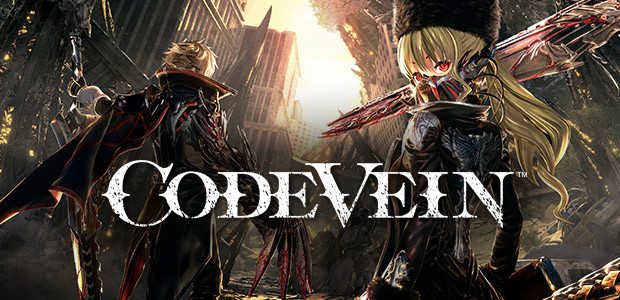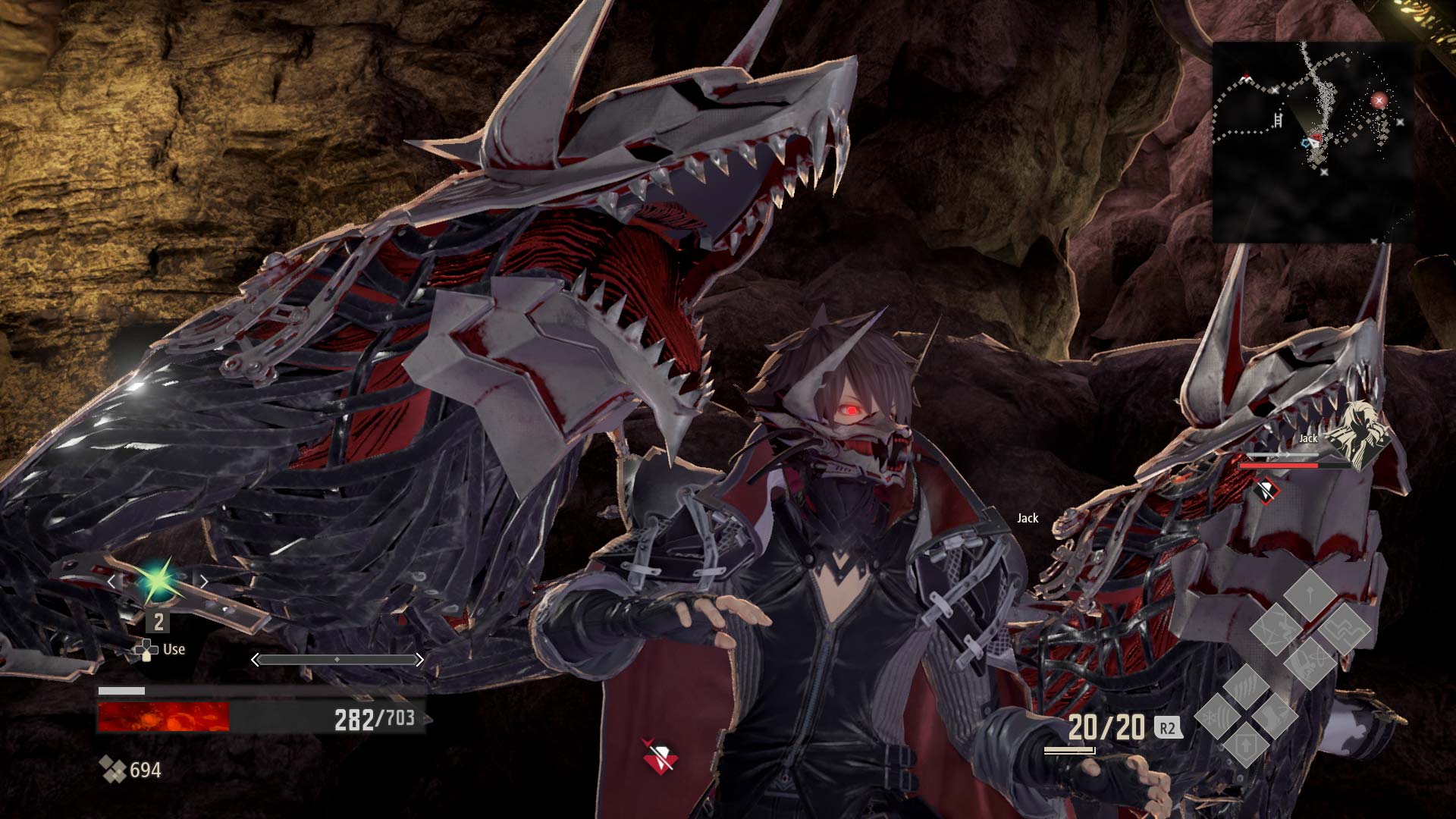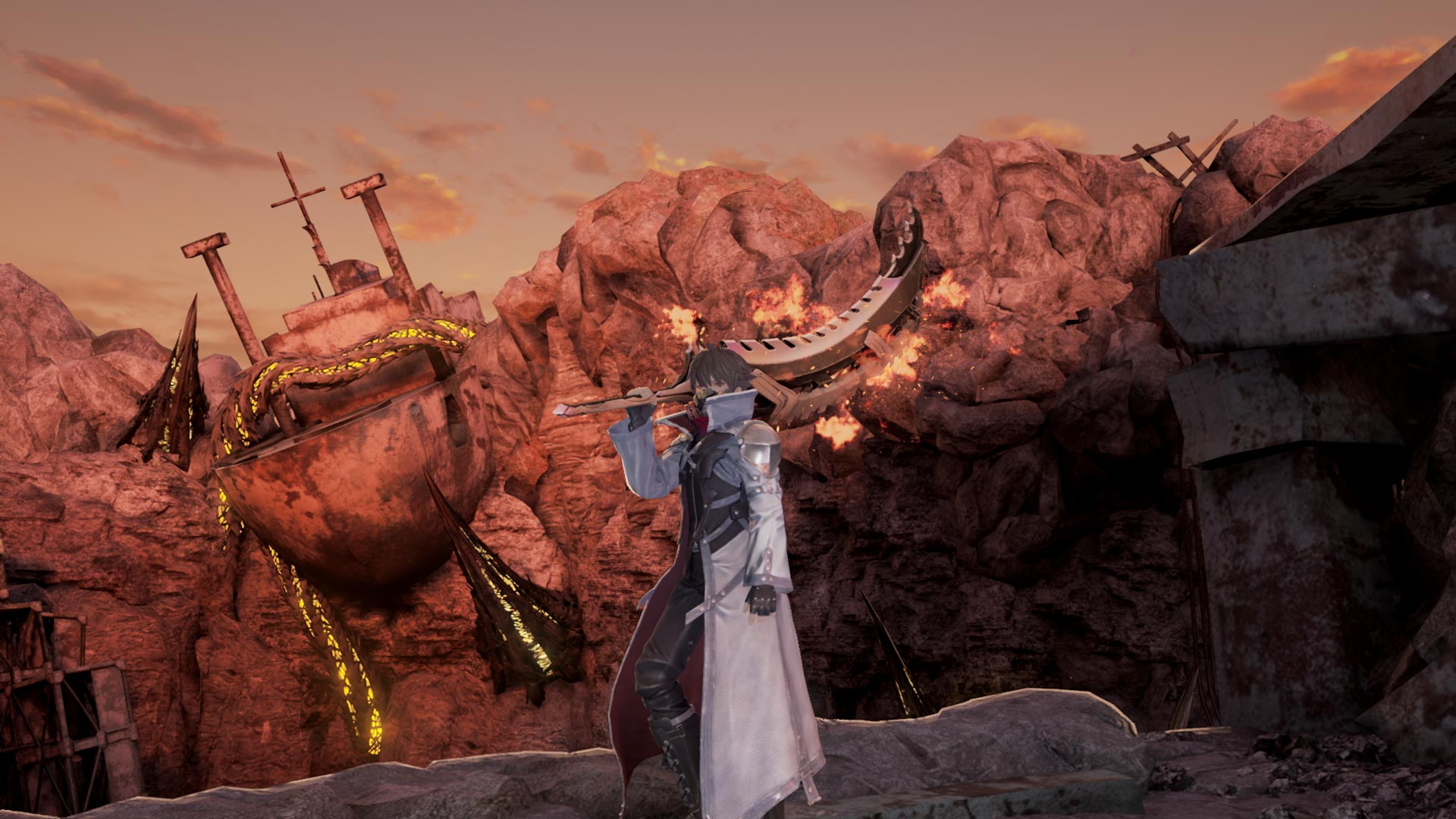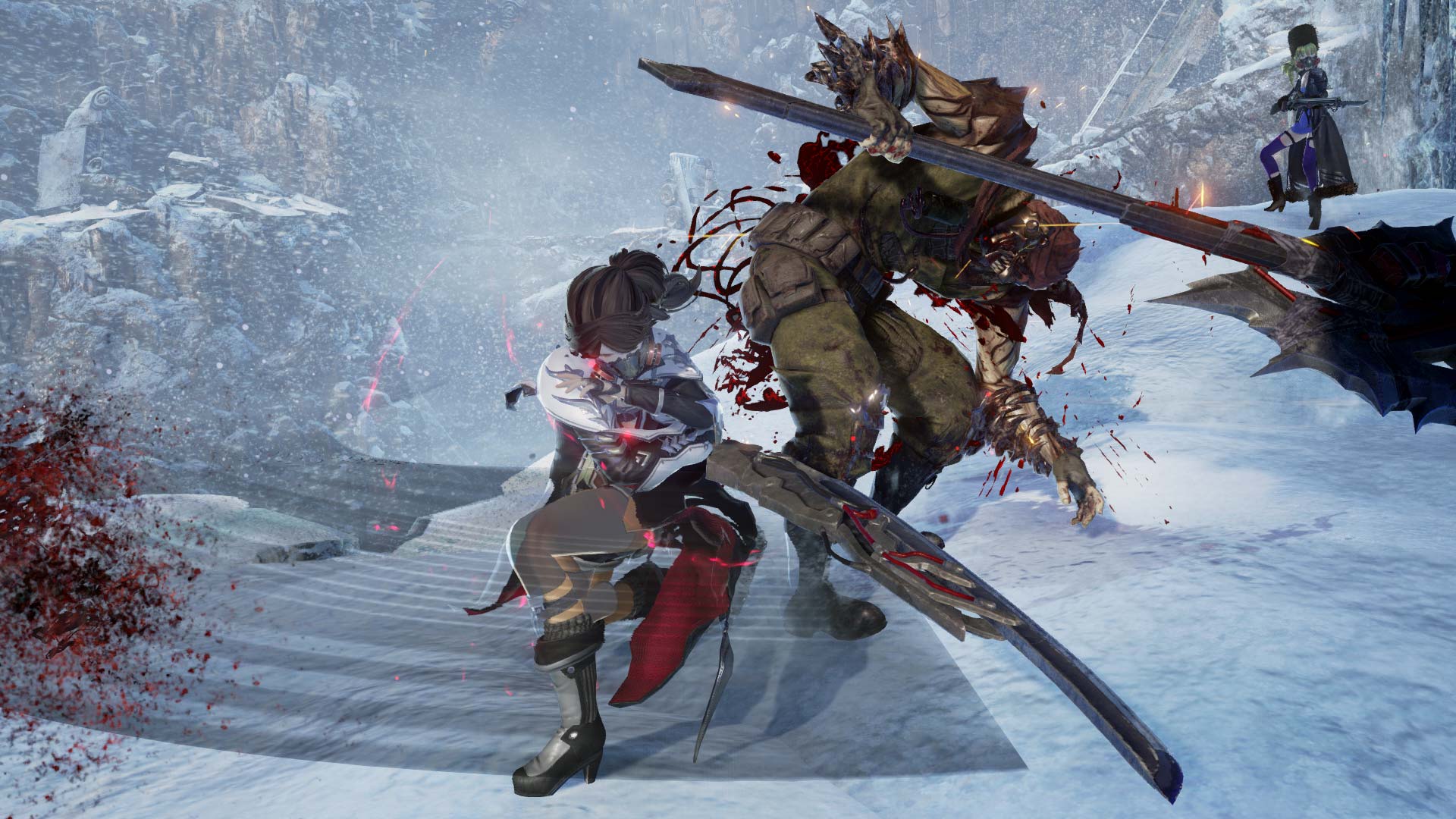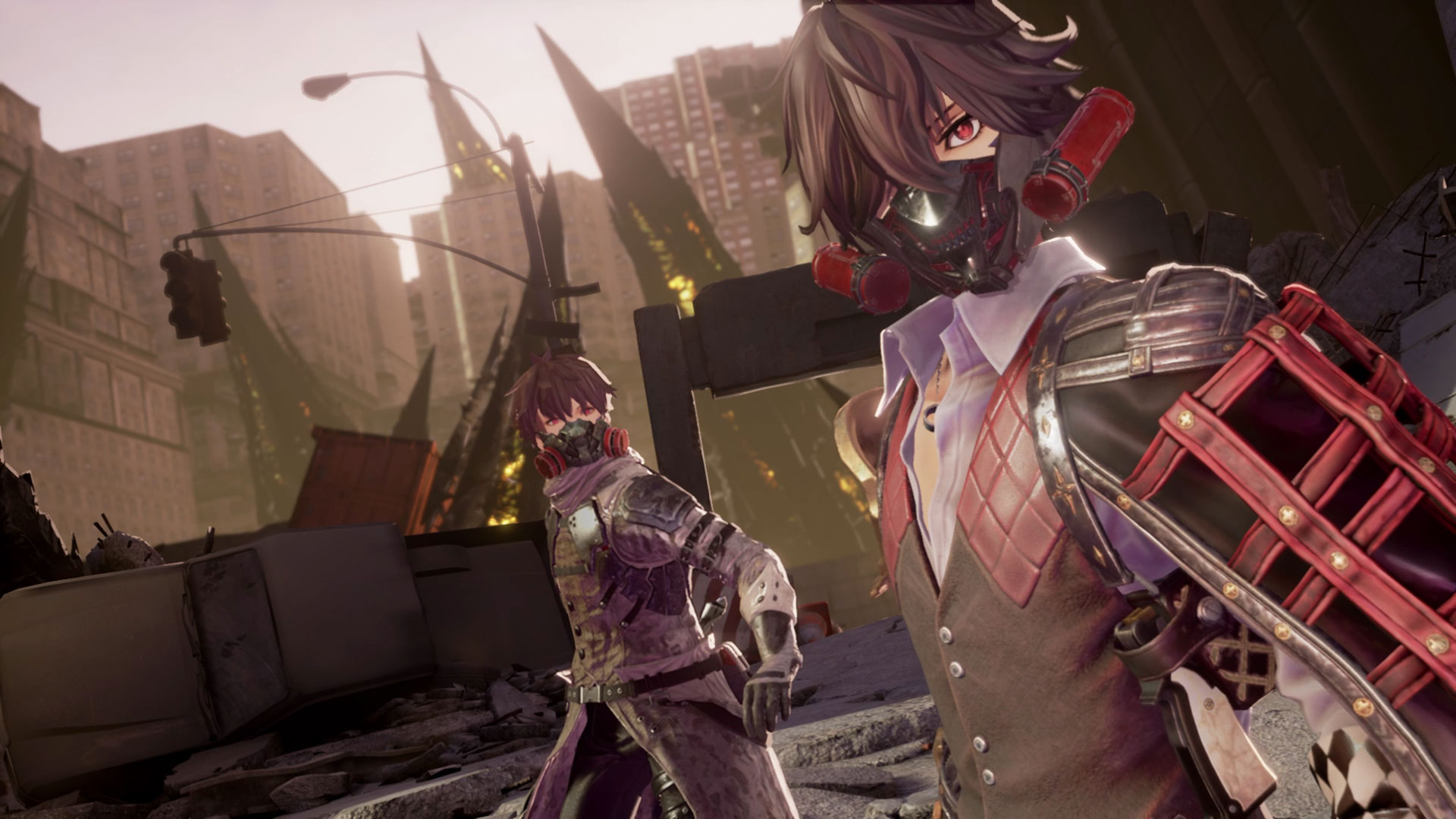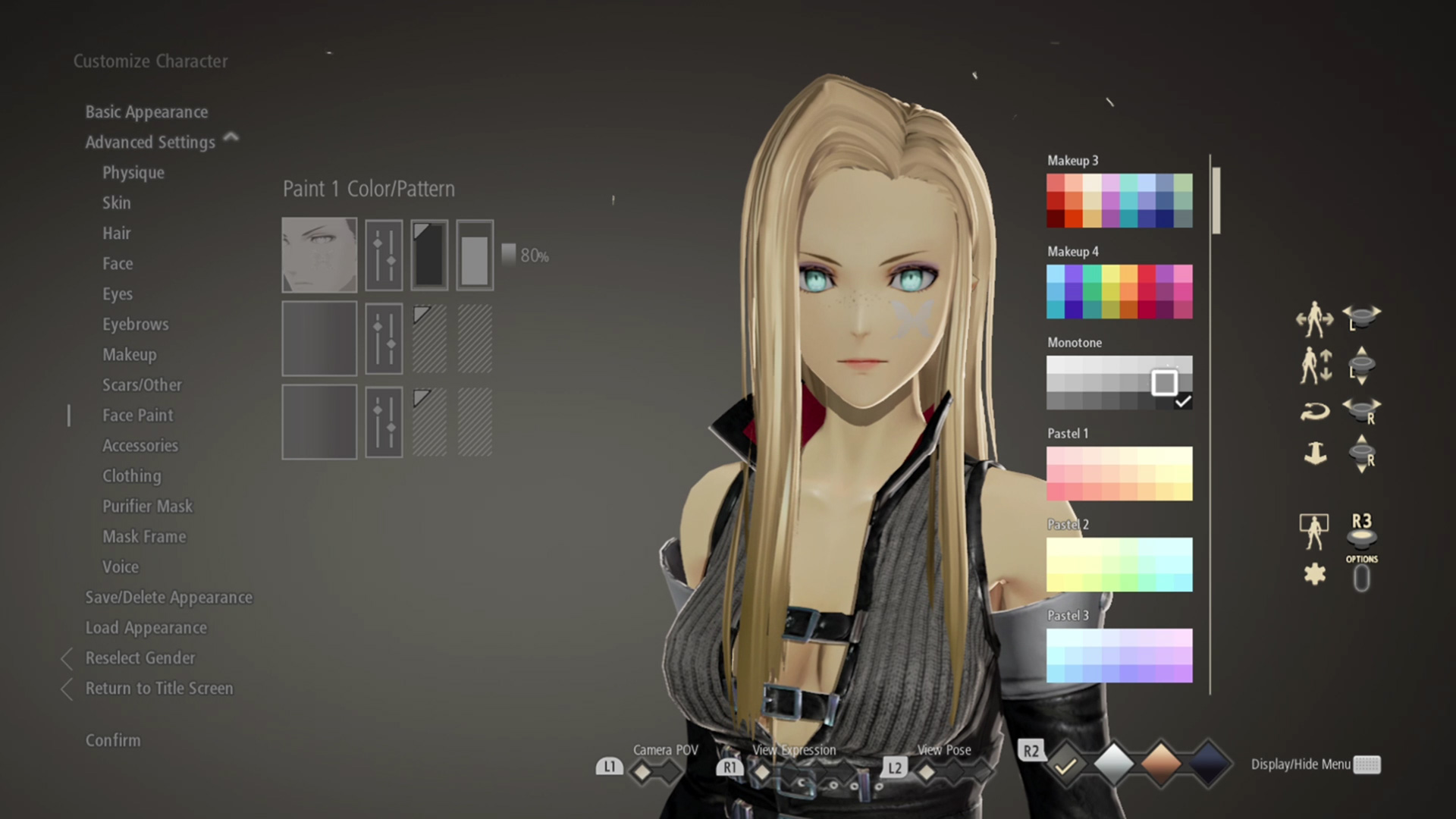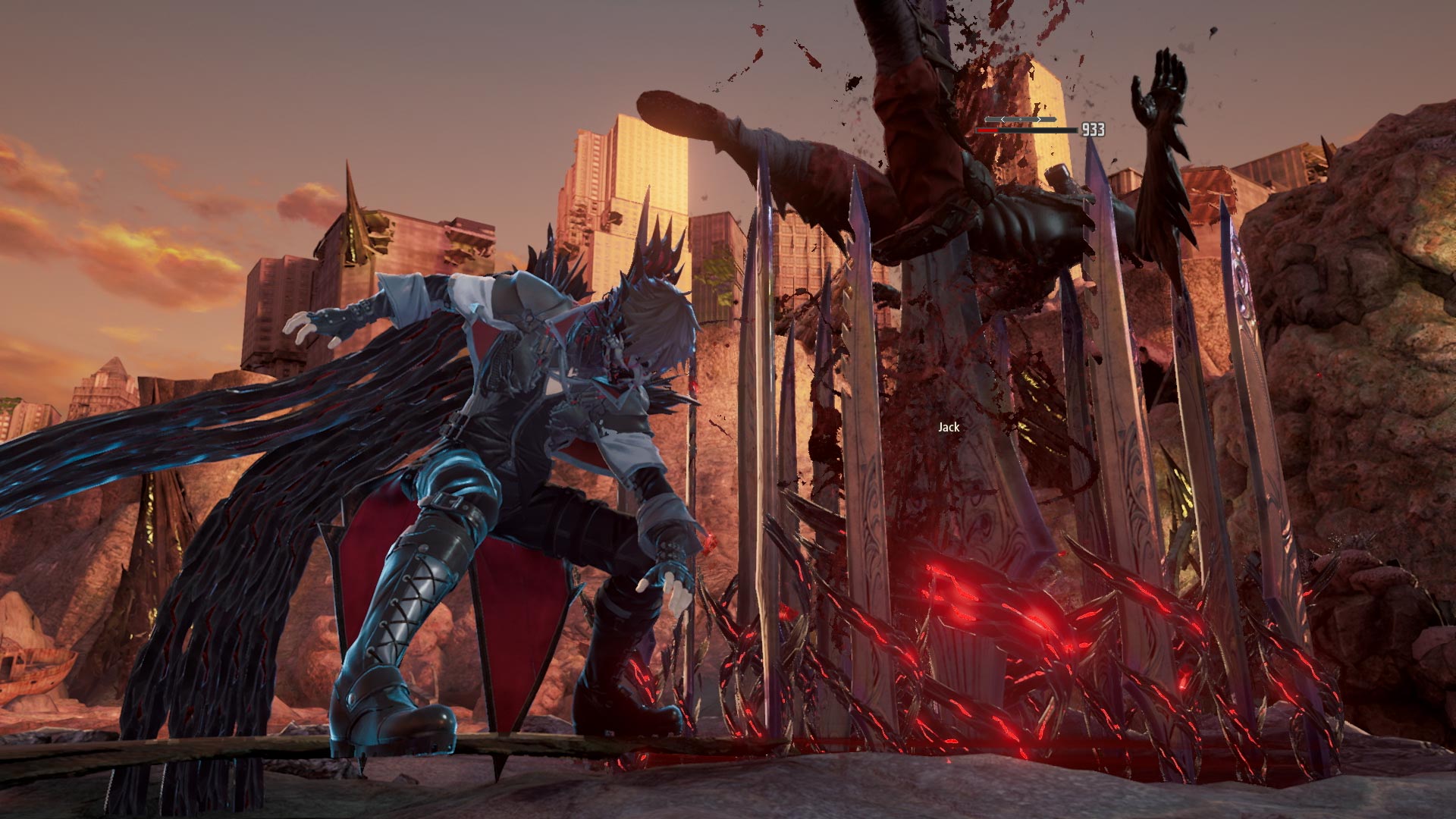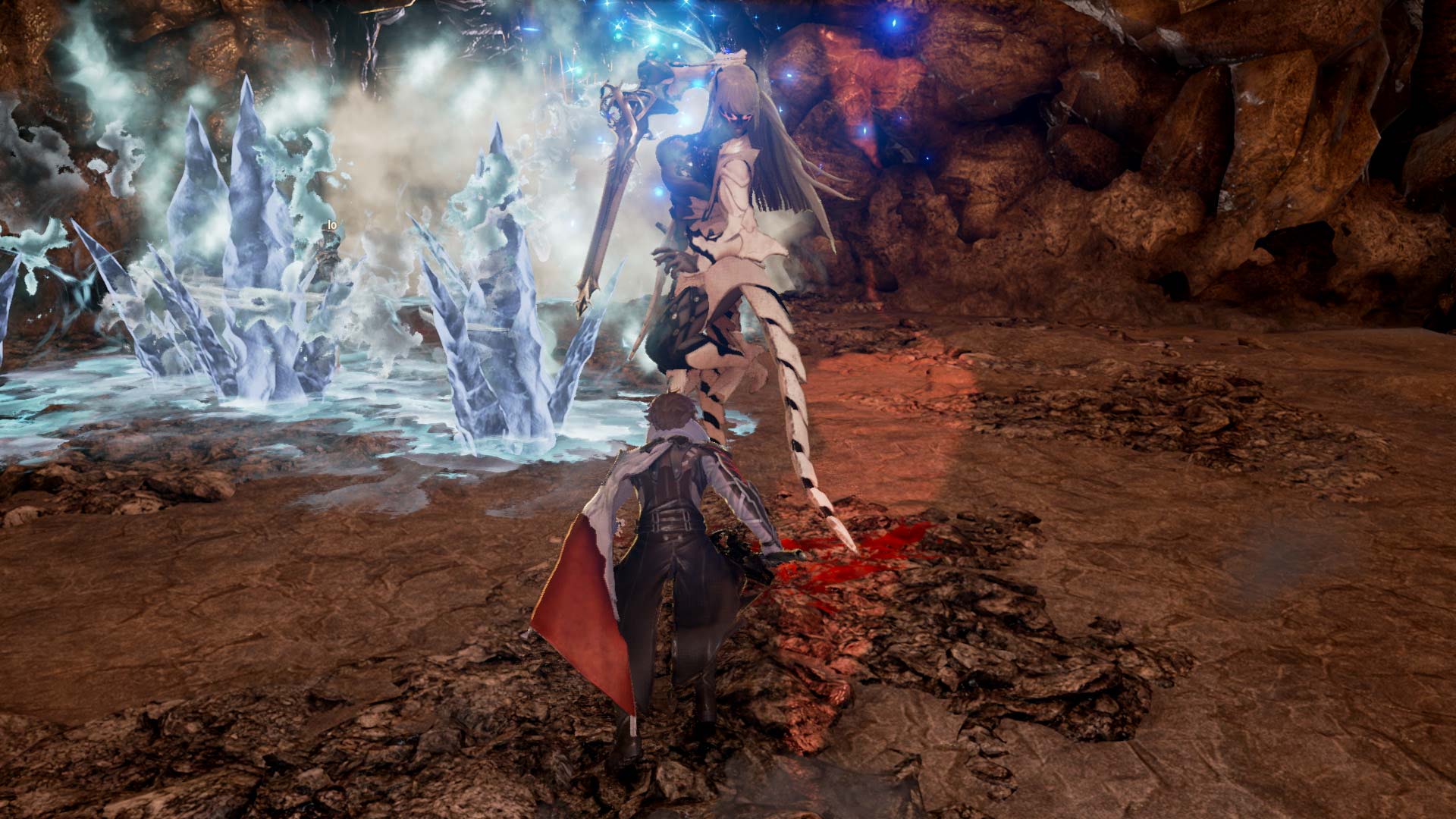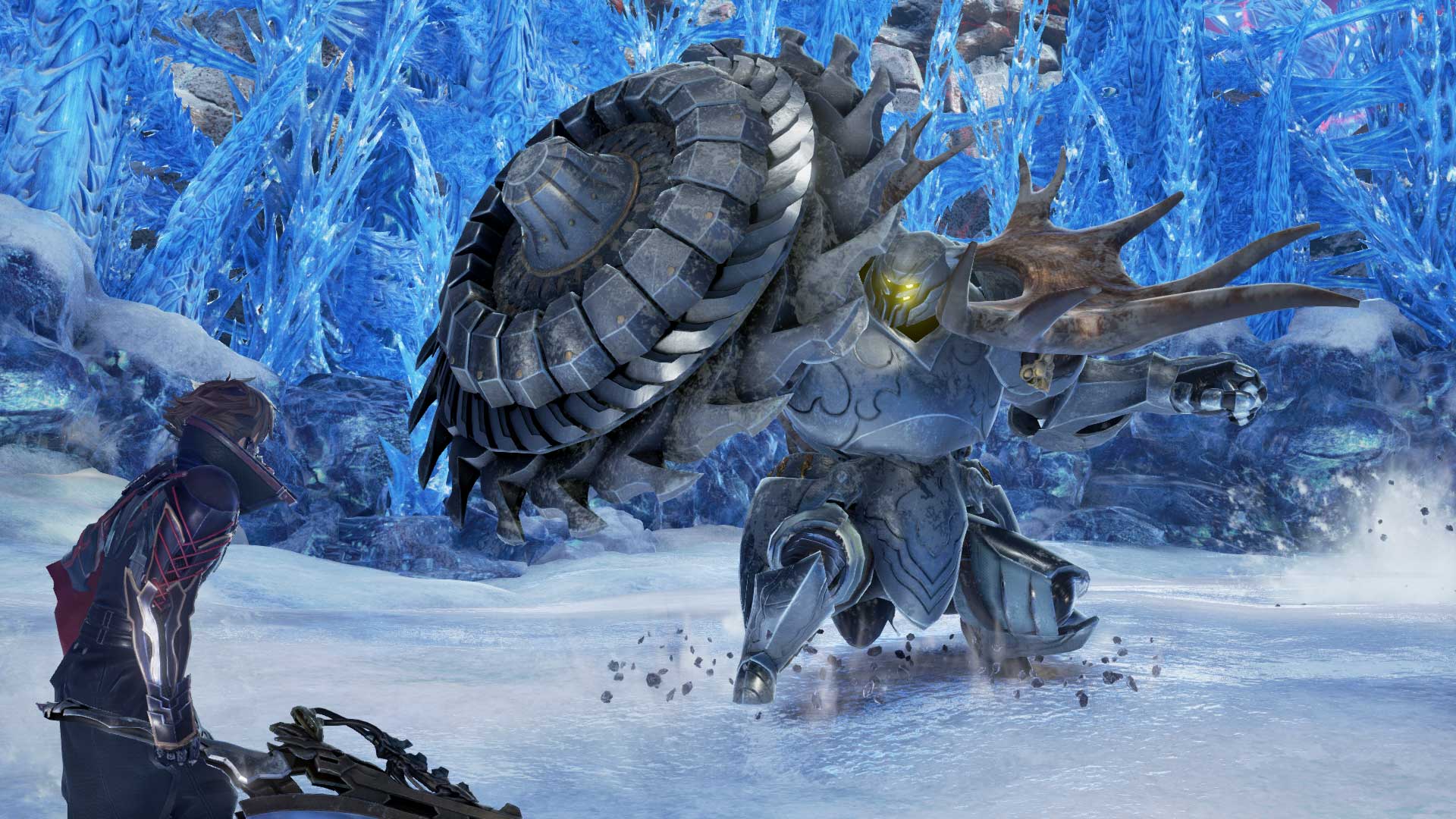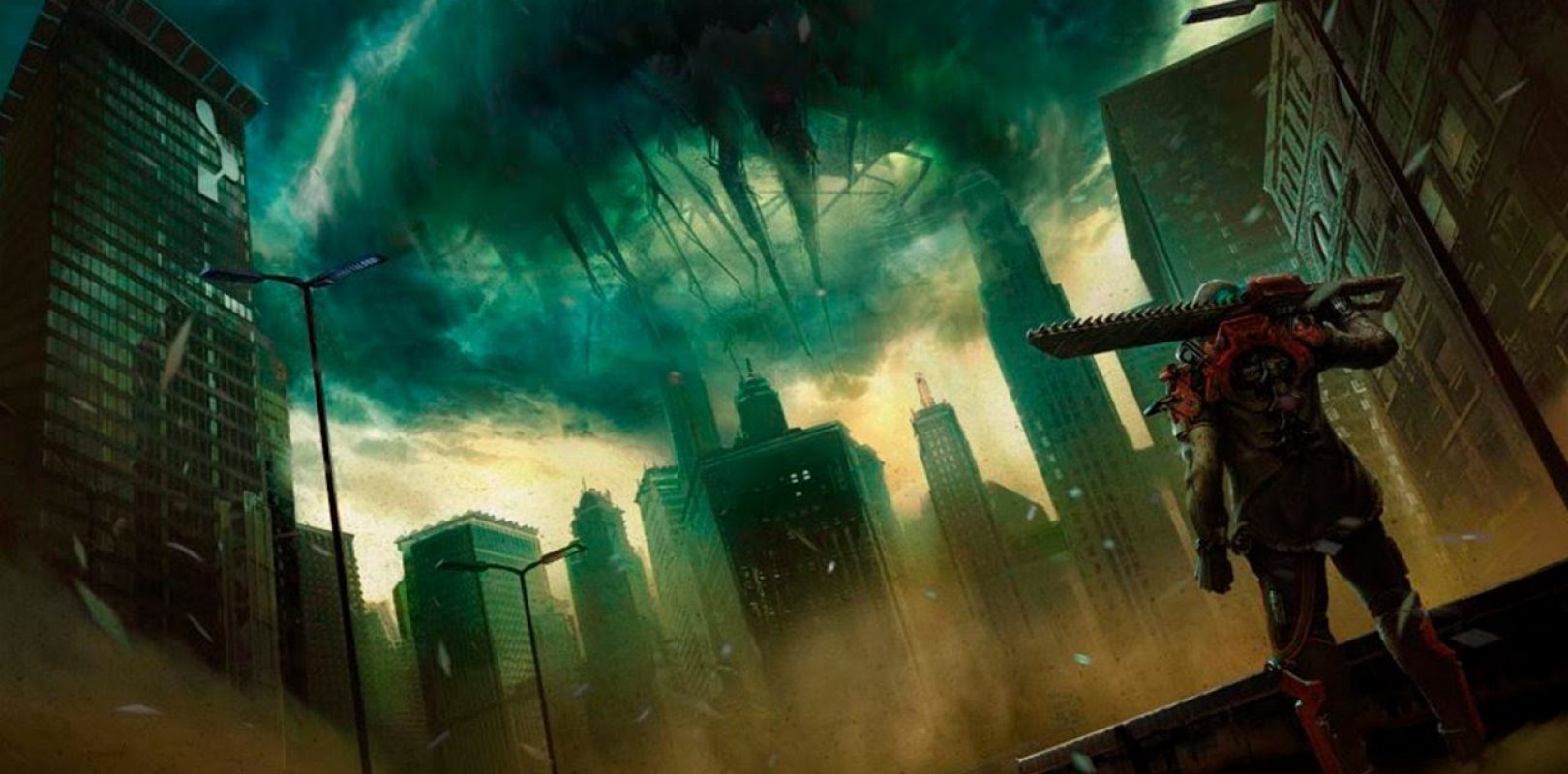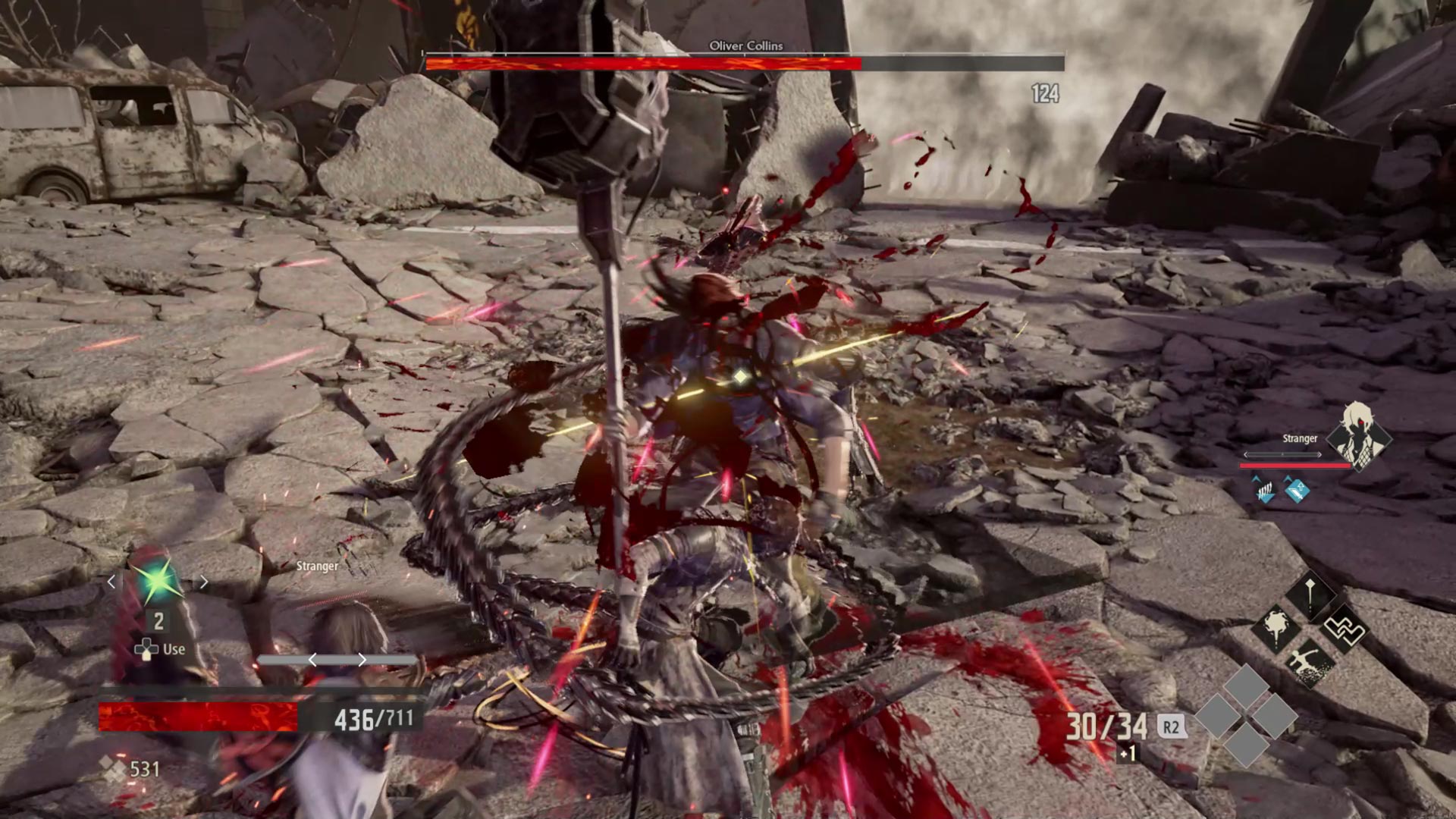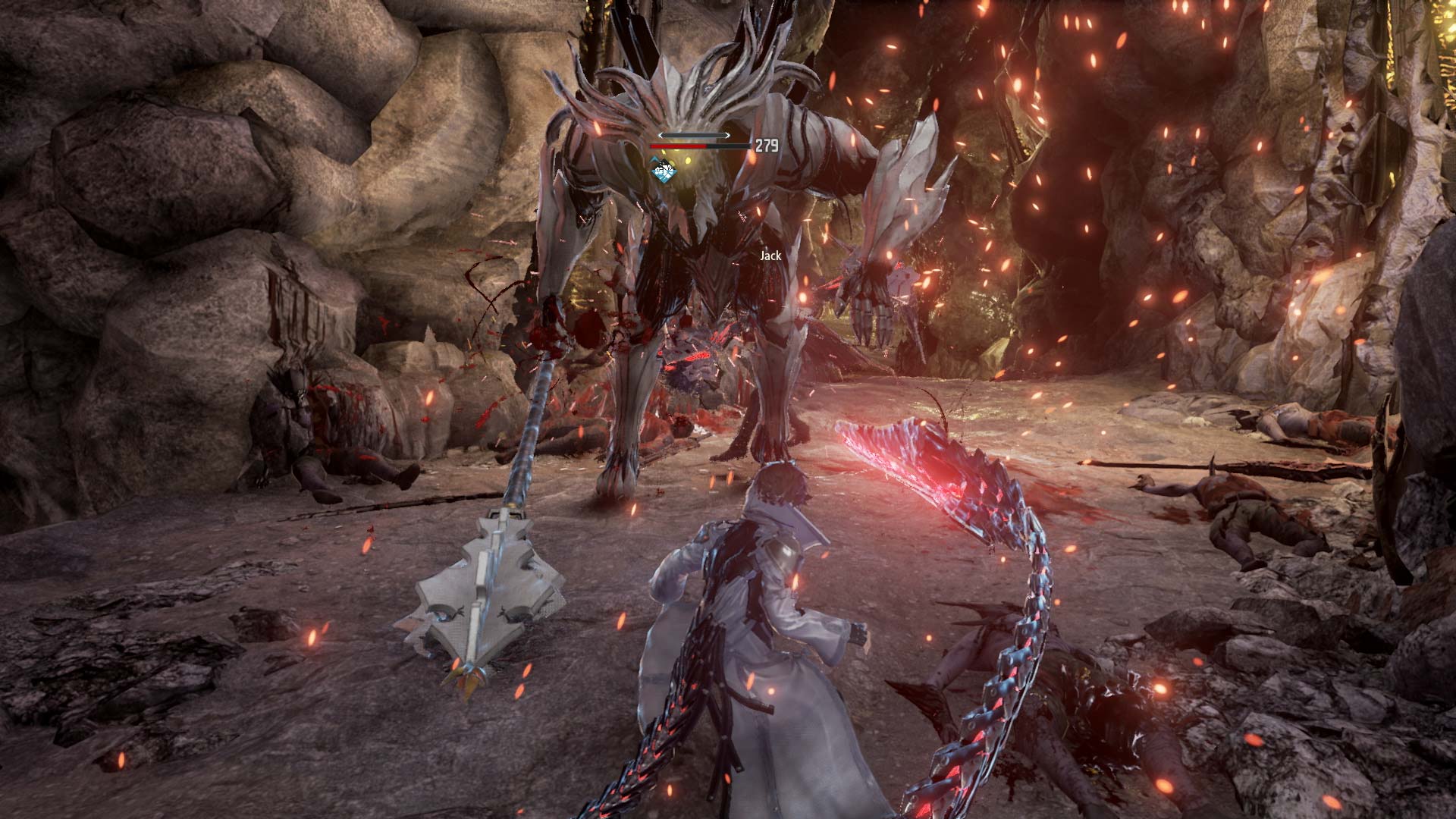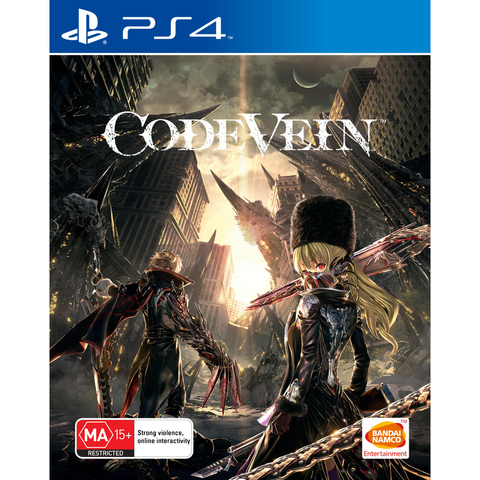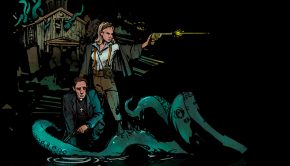Code Vein PS4 Review
Summary: Some may be deterred by the art style, and look, I get it, but if you’re only taking Code Vein at face value then you’re depriving yourself of one of the richest and most fun takes on the Souls genre I’ve played thus far.
4.1
Tapping the Souls Vein
Code Vein really caught me off guard. My previous review was for The Surge 2 and during my assessment of how well that game stands up compared to other titles in the ‘Soulslike’ genre, I lamented the fact that, with the exception of Nioh, most games that ape the souls formula ultimately just fail to click with me the same way that Fromsoft’s efforts do.
It’s hard to quantify but there’s usually some missing element that just sends me returning back to the Fromsoft well over and over again rather than committing myself to these new contenders to the throne beyond my initial playthrough.
Code Vein, however, tickled me just right and, for my money, is one of the strongest titles to come out of the Soulsborne genre to date.
Firstly, let’s address the elephant in the room: Code Vein’s artistic direction. By leaning heavily into stylised Anime imagery and character designs, the game risks alienating a not insubstantial portion of its potential playerbase, arguably due predominately to the perceived oversexualisation of the female characters.
As somebody who hasn’t really ever got into Anime, aside from the works of Studio Ghibli of course, I admittedly wasn’t too taken with the art direction initially but, over time I learned to appreciate it for what it was and realised that it had very little bearing on either the quality of the game or the fun I was having whilst playing it.
When it comes to the representation of female characters, well, I’ll be the first to admit that it can be a little problematic; they bounce about, scantily clad and sporting jiggle physics that would put the Dead or Alive games to shame and the whole thing smacks of fan service and pandering to the horned up teenage boy crowd, something that I personally feel is a bit of a problem with Anime as a whole. It’s kinda weird when one character is expressly described as being underage but is still possessed of a bosom that dwarfs the size of their noggin.
With that said, your mileage may vary and those who are more familiar with the tropes of Anime will certainly be able to point to more egregious examples of hyper-sexualisation in other games. It’s a bit of a touchy subject and I can see how many may dismiss the game on the basis of the visuals and Waifu characters… Indeed, this is partially the reason why I personally can’t get into a lot of Japanese media.
However, those who skip out on Code Vein due to the visuals are going to find themselves missing out on what I feel is one of the best additions to the Action/RPG formula in recent times. Obviously with all of the comparisons to the Souls games, Code Vein is heavily indebted to Fromsoft’s series of games, from the way combat is handled to the emphasis on exploring locations, opening shortcuts and resting at save points, represented here by Mistle.
Code Vein builds upon these foundations in some really interesting ways that serve to make it stand out from the glut of other imitators though. Perhaps most importantly is the class system, which here is governed by which Blood Code you have equipped.
The world of Code Vein is populated by Vampiric revenants, created by a parasite as a way to fight the corruptive influence of monsters who have besieged the world after an even referred to as The Collapse. These revenants are usually locked to a singular Blood Code, but your character has the rare ability to absorb and utilise any Blood Code they desire, meaning that you’re able to switch your class on the fly rather than be beholden to the same one for your entire playthrough.
This heavily impacts the way that you approach the game, as you’ll unlock gifts that are unique to each class, which, when mastered, can then be carried across to other Blood Codes, offering a diversity of combat and defensive options that feels almost limitless. These range from passive and defensive boosts to devastating special attacks and communal gifts that buff both yourself and your partner.
You can craft a Blood Code that best suits your playstyle and then fill your 12 gift slots with whichever gifts you’ve unlocked along the way through either playing with them equipped or using items to expediate the process, meaning you can have a tank character who is also quite adept with magic or any other myriad combination of skills on offer. It truly feels like you can create any character class you so desire and is easily one of the best things about Code Vein.
The character creator also offers up a large variety of outfits and other features to play around with and use to craft an avatar that can feasibly look like anyone that you want. The quality of character creations I’ve seen shared on Reddit and the like never ceases to amaze me and many tout this feature as one of the most comprehensive and well received in the game. Personally, I don’t have the patience to fiddle about for too long when making a character but for those so inclined there’s an abundance of options on offer here.
Creature and boss designs hold up quite well, particularly the latter, and although the difficulty is slightly below that of the Souls games, there were more than a few Bosses here that gave me a run for my money; one early on was constantly hammering me with poison whenever I got close, so I switched to a caster Blood Code and picked them off from a distance, which is a testament to how the flexible Blood Code system can help alleviate any brick walls to your progression you may encounter.
Other bosses, such as a particularly feisty duo near the end of the game, can feel insurmountable until you get their movesets down, at which point you can punish them in a satisfying manner and get revenge for the many times they had you on the ropes… Until you meet them again in the Depths, that is.
What are the Depths? A little like Bloodborne’s Chalice Dungeons, the Depths are pretty much endgame content that allows you to fight mini-bosses and rechallenge a selection of previous defeated bosses in order to gain more Haze (The currency in Code Vein), unique items and weapons and, agonisingly, Medals of Honour for working in tandem with a summoned player or, conversely, by being summoned into another player’s game.
Although Code Vein offers you the choice between having an NPC accompany you throughout the entire game, you can also elect to summon in a third party to assist; with each summon and subsequent defeat of a boss, you get a medal as a token of your cooperation, and these medals are tied to what would have to be the grindiest trophy I’ve ever encountered, which is to gain 400 of them. Believe me when I say that I’m glad that the medal grind is now behind me, taking up around 14 or so hours of playtime running the same few maps over and over again.
Summoning as whole can be a little hit and miss, with many attempts failing even after recent patches, although I found that using a password can help alleviate these netcode issues. Hitboxes can also feel a little off at times, and this is often exacerbated when playing as a guest in another player’s world, but generally the online portion of the game holds up fairly well, just don’t expect the same stability as that found in the Souls’ games.
Level design also varies in quality, with some areas feeling like they’re overly convoluted for the sheer sake of being overly convoluted (I’m looking at you, Cathedral of the Sacred Blood), but you never feel too disoriented for the most part, although a little more environmental variation would have been welcomed.
The narrative can get a little disjointed at times but offers far more than what’s on offer in similar titles and, for the most part, is engaging enough to propel the player forward… Some scenes are actually quite moving in their own way as well, and you start to feel a tangible connection with the characters as more and more of their past is revealed to you, something I never felt when maneuvering my voiceless avatar through the ruins of Lordran and the like.
Graphics and Audio
I touched upon the art direction above, so needless to say if you enjoy the Anime style of character and creature design then you’ll likely love this. Others, like myself, who may not be so enamoured with that aesthetic may find it a little hard on the eyes at times but ultimately it doesn’t serve as a negative strike against the game in any way.
The music is catchy, with two rock songs in particular appealing to my inner Emo, and forlorn when necessary, such as the beautiful tune that plays when viewing memories from vestiges you’ve restored. However, these songs are repeated ad nauseam and soon begin to grate on the nerves, so take my compliments with a grain of salt as your feelings may change after walking through your fiftieth memory and hearing that plinking piano kick off once again.
The vocal performances are essentially what you’d expect from a game like this, bombastic and full of awkward energy in a way that only English dubs can be.
Final Thought
Code Vein surprised me with how quickly it sucked me in and refused to let go. The game is probably a bit more accessible to newcomers with its streamlined levelling system and slightly lower difficulty when compared to the Souls games, but that doesn’t mean that it’s an overall easier game, although you never really feel as stuck in terms of progression as you could in the aforementioned games due to the versatility of the Blood Code and Gift systems offering up multiple ways to approach a situation.
Some may be deterred by the art style, and look, I get it, but if you’re only taking Code Vein at face value then you’re depriving yourself of one of the richest and most fun takes on the Souls genre I’ve played thus far.
The level design isn’t as intricately detailed as what we’ve come to expect from the Fromsoft games and combat can admittedly feel a bit floaty and not as refined but, overall, Code Vein holds up exceptionally well when compared to the undisputed king of the genre.
Game Details
Primary Format – PlayStation 4 (Reviewed), Xbox One, PC
Game Genre – Action/RPG
Rating – MA15+
Game Developer – Bandai Namco
Game Publisher – Bandai Namco
Reviewer – Sean Warhurst


